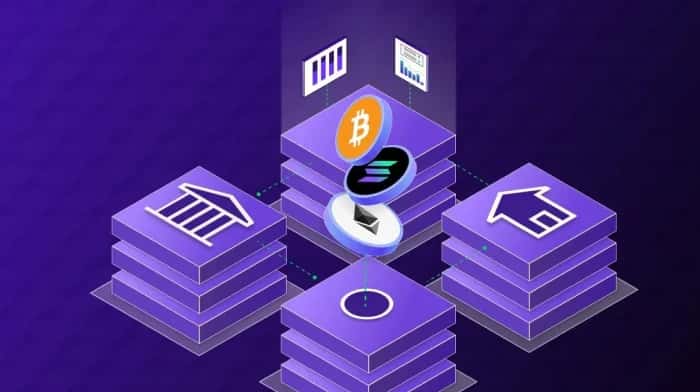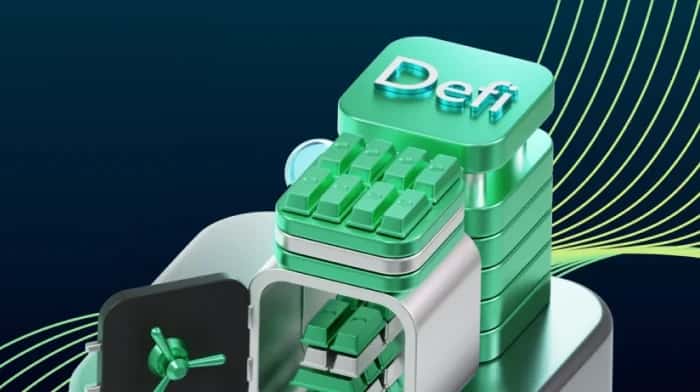
Introduction
The world of banking is undergoing a transformation thanks to the rise of blockchain technology. This innovation is changing the way we think about transactions, security and transparency.
At its core blockchain is a ledger that records transactions across a network of computers allowing for fast and efficient exchange of data. What does this mean for modern banking?
The Problems with Traditional Banking
The old ways of banking just aren't cutting it anymore. For one it takes forever to process transactions. We're talking days, not hours. That's not even getting into the fees that come with moving money around.
- •Not to mention the whole system is reliant on a bunch of middlemen, which only adds to the complexity and expense
- •This also leaves a lot of room for fraud, which is a worry for banks
Blockchain is shaking things up by making transactions faster and more transparent. With this technology payments can be made quickly and securely without needing all those intermediaries. This not only saves time but also reduces the risk of fraud making it a much more attractive option for financial institutions.
The Impact of Blockchain on Banking Operations
Banks are now capable of processing payments immediately which slashes their overhead dramatically. The use of contracts has streamlined complex tasks, such as issuing loans and verifying customer identities making the entire banking process more agile and reliable.
With blockchain technology financial institutions have found a way to pare down their costs. In some cases by as much as 40 percent. This savings is mainly achieved through expenditure on compliance and document handling as banks adopt blockchain based solutions for handling payments and verifying customers identities.
Blockchain is having an impact on the banking industry and its not just theory. There are practical ways its being used to change how things work.
Understanding Blockchain Technology
Blockchain technology is being increasingly talked about in the context of banking. At its core this technology represents a way of recording transactions that's transparent, secure and almost impossible to manipulate.
The idea is fairly straightforward; imagine a ledger that's distributed across a network of computers rather than being held in a location. Every time a transaction occurs its recorded on this ledger. But here's the clever part; once its been recorded it can't be erased. This makes the whole system incredibly secure.
The use of blockchain in banking is about bringing in a way of doing things. One that uses a shared decentralized ledger to keep track of transactions store data and check customer info. This digital ledger works by recording transactions in a secure way so that once something's been written in it can't be altered.
Benefits of Blockchain in Banking
The introduction of blockchain technology in the banking world has a number of benefits:
- •It allows for money transfers. When you send money abroad it doesn't have to go through a chain of intermediaries, which slows everything down
- •With blockchain banks can make payments instantly. They can also verify these payments in time
- •This not only cuts down on fraud but also reduces the banks operational costs and makes the whole process more transparent
- •Better security is achieved through encryption, which cuts down the risk of data breaches
- •Other processes, like knowing your customer and approving loans can also be done automatically with contracts
This makes banking faster and more convenient for customers.
Implementation Models for Blockchain in Banking
When it comes to implementing blockchain technology in the banking sector there are a few models that stand out:
- •One approach is to use blockchain as the foundation for a brand system allowing for an overhaul of existing infrastructure
- •Alternatively banks can choose to integrate blockchain into their existing systems using it to enhance areas such as data storage or transaction processing
- •Then there's the option to use blockchain in a capacity focusing on specific applications, like trade finance or identity verification
Each of these models has its advantages and challenges and the right choice will depend on the specific needs and goals of the bank in question.
Consortium Blockchains
Consortium blockchains are essentially a type of blockchain that's designed for use by a group of organizations rather than being open to the public like some other blockchains.
Consortium blockchains are a type of network that's managed by a group of banks or financial institutions working together. This partnership creates a secure system where everybody involved knows and trusts each other. It's perfect for things like settling payments between banks or financing trades where multiple parties are involved and need to cooperate.
Private Blockchains
When it comes to blockchain technology there's a type that's often overlooked. The blockchain. These are closed networks, not like the ones we're familiar with. They don't allow just anyone to join in or access the data that's being shared. Instead they're typically used within organizations or groups where members are carefully selected and trusted.
When it comes to blockchains the control rests squarely with an organization. Often a bank. This setup has its advantages, including:
- •Top notch security
- •Speedy transaction processing
- •Robust privacy protection
As a result private blockchains lend themselves well to tasks like auditing, verifying customer identity and handling loan applications.
Public Blockchains
Public blockchains are there for everyone to see. Public blockchains are open to anyone and operate on a decentralized model. This level of openness isn't typically found in banking, where privacy's a major concern. However it's this transparency that makes blockchains so useful for things like creating currencies or offering financial services that are open for all to see such as lending between individuals or crowdfunding websites.
Key Applications of Blockchain in Banking
In 2025 some really promising uses for blockchain technology are starting to take shape especially when it comes to banking. The world of banking is undergoing a shift thanks to blockchain technology. This innovative approach is making waves by providing quicker efficient solutions that can be applied in a variety of ways.
Cross-Border Payments
When it comes to sending money across borders the old ways can be slow and expensive. Blockchain is changing that. It makes international transactions happen instantly with fees to boot. The best part? It cuts out all the middlemen who normally take a cut. This means that cross border payments are more transparent and can be tracked in time which is a deal. It can take days for border payments to go through but blockchain makes it all happen in the blink of an eye.
Fraud Prevention
Fraud is a concern for banks. They're looking for ways to stop it. One way to do this is by using a ledger that can't be altered and encrypting information. This helps banks catch people trying to cheat the system and reduces the chances of someone spending the money twice messing with data or getting access to things they shouldn't.
Customer Verification (KYC)
Banks can make their customer verification process a lot smoother by using blockchain technology to store and share vetted customer information. This cuts down on paperwork speeds up the time it takes for new customers to get on board and helps banks stay on the side of the law. At the time it makes life easier for the customers themselves.
Smart Contracts
Smart contracts are automated agreements that can execute on their own without anyone's input. This means they can greatly simplify processes like getting a loan filing an insurance claim or financing a trade. By taking humans out of the loop everything runs smoothly and quickly with fewer mistakes.
Trade Finance
Trade finance can be a business. Blockchain is helping to clean it up. By cutting down on paperwork and making sure all parties are on the page its reducing delays. Bringing a lot more transparency to the table. This means that documents and payments can be verified in time which helps build trust among everyone involved in a trade deal.
Syndicated Loans
When it comes to managing syndicated loans things can get complicated. We're talking banks, a ton of paperwork and a whole lot of room for errors. What if all the parties involved could access the information at the same time without having to wade through piles of documents? That's where blockchain comes in streamlining the process and slashing delays, mistakes and operational costs in the bargain.
Asset Tokenization
Banks are finding a way to turn assets into digital forms using blockchain technology. This process, known as asset tokenization makes these assets a lot easier to buy and sell and to keep track of. Its also creating chances for people to invest and is helping to make the markets work smoothly.
Clearing and Settlement
Clearing and settlement. It's a process that's been known to drag on for days. What if it didn't have to? With blockchain the whole process can be turned on its head allowing for settlements to happen in time or at the least on the same day. The key to this lies in the fact that blockchain provides a version of events. A single source of truth if you will. This not only reduces the risk of disputes between parties but also cuts down on the risk of one party failing to deliver. That means capital gets freed up allowing it to be used for important things.
Benefits of Blockchain Implementation
The banking world is buzzing about blockchain and for reason. This technology has the potential to completely reshape the way banks operate making them faster, safer and more efficient.
Blockchain is having an impact on banking making transactions faster and more secure. Its also bringing a lot transparency to the table, which's a win for both banks and their customers.
Faster Transactions
When it comes to banking across borders we're all too familiar with the frustration of waiting days for payments to go through. What if things could be sped up? Thanks to blockchain technology they can. By cutting out the middlemen and streamlining the process blockchain makes it possible to transfer funds in time or at the least near instantly. This doesn't just make life easier for individuals it also helps speed up domestic transactions making the whole system more efficient.
Enhanced Security
The way blockchain works is that records are encrypted and spread out across a network of computers making it really tough for someone to alter the data or break in. This basically eliminates a chunk of the fraud and identity theft that can happen in banking. With data stored in different places it's incredibly hard for hackers to get in and cause any trouble.
Cost Reduction
One of the benefits of blockchain for banks is that it can help cut costs. By taking out the middlemen and using automated contracts banks can save on the processing side of things. This streamlines a lot of their operations like how they clear and settle transactions and helps with compliance checks.
Transparency and Auditability
Every time a transaction is made on a blockchain, its and given a timestamp. This creates a record that can't be altered which helps to establish trust with customers and makes it easier for banks to comply with regulations.
Improved Compliance
When it comes to following the rules blockchain can be a help. For instance it makes it easier for banks and other companies to share information about their customers in a way. This means they don't have to keep asking for the information over and over which saves everyone time. It also helps them comply with laws about knowing their customers and stopping money laundering.
Streamlined Credit Processing
With contracts the loan and credit process becomes a lot smoother. They automate everything from approvals to disbursements and repayments which saves a ton of time and cuts down on paperwork. This means errors and delays when it comes to evaluating credit making the whole thing more efficient.
The Future of Blockchain in Banking
The future of blockchain in banking is a topic that's gaining a lot of attention. What role will this technology play in shaping the industry?
For starters blockchain has the potential to change the way transactions are processed making them faster and more secure. This could be a game changer for banks, which have long been plagued by costly payment systems. That's not all. Blockchain could also revolutionize the way we think about identity verification, asset ownership and even the creation of currencies.
As the technology continues to evolve it's likely that we'll see its impact being felt across the banking sector. Some experts are already exploring the possibilities of blockchain based banking systems, which could potentially democratize access to services and reduce the need for intermediaries.
Banks are taking a look at blockchain seeing it as a way to revolutionize how they deliver their services. It's likely that this technology will become a part of how banks operate. People want things to happen faster with risks and more openness, which should boost the use of blockchain in areas like:
- •Verifying identities
- •Making payments in time
- •Transferring money across borders
When banks team up on shared blockchain networks they can strip away some of the hassle from know your customer procedures cut down on fraud and ease the burden of compliance. Using contracts could also help automate a few tasks like trade financing and doling out loans.
What's really interesting is how blockchain might help level the playing field. By giving people in rural areas and those without access to traditional banking a safe way to use these services.
The financial industry is on the verge of a shift. Advances in regulations and technology are expected to push blockchain out of the phase and into use changing the way things are done. This transition will likely have an impact making the financial industry more innovative, efficient and trustworthy.
Real-World Examples
Banks around the globe are getting serious about blockchain using it to streamline their operations boost security and cut costs. By putting blockchain to use they're finding ways to make their systems more efficient and secure.
JPMorgan Chase - JPM Coin
JPMorgan has created its currency called JPM Coin, which allows for instant money transfers between big clients. This is a deal because it makes transactions the kind that cross borders much faster. At the time it keeps everything secure by using blockchain technology.
ICICI Bank - Trade Finance
ICICI Bank in India has started using blockchain technology to handle trade finance and remittance transactions. This move aims to cut down on paperwork speed up the process and allow both exporters and importers to track their documents in time. As a result everything becomes more efficient and streamlined making it easier for businesses to trade with each other.
HSBC - Forex Settlement
HSBC is using blockchain technology to process billions of dollars in foreign exchange trades on its platform, known as "FX. This approach has significantly sped up the settlement process making it faster and more efficient. By automating many of the tasks involved it also decreases the need for reconciliation between banks, which can be time consuming and prone to errors.
YES Bank - Smart Contracts
YES Bank has taken a step forward by introducing blockchain based contracts to streamline its vendor financing process. By doing the bank aims to cut down on delays reduce the likelihood of activities and ensure that payments are made automatically as soon as all the terms of the contract have been met. This move is expected to bring about an secure way of handling transactions.
State Bank of India - BankChain Consortium
The State Bank of India is part of something called the BankChain consortium, where they use a technology called blockchain. They're using it for a few things like verifying customers identities and processing loans. It also helps stop fraud. By working like this banks can collaborate easily and make sure customers are who they say they are, no matter which bank they're dealing with.
Conclusion
The banking world is undergoing a transformation, driven in part by the emergence of blockchain technology. This innovation is streamlining processes making them not quicker but also more secure and open. From banks to smaller local institutions, financial organizations everywhere are taking a closer look at blockchain solutions and beginning to put them into practice.
As more and more banks climb on board it's likely that the entire financial landscape will become more streamlined ultimately benefiting both the banks themselves and the people they serve.
The effects of this technology go beyond making a few processes more efficient. Its actually transforming the way banks handle security, transparency and customer service. As blockchain becomes established and regulatory frameworks start to take shape it's likely that banks will start to adopt it quickly which could lead to some really exciting innovations and streamline financial services.


